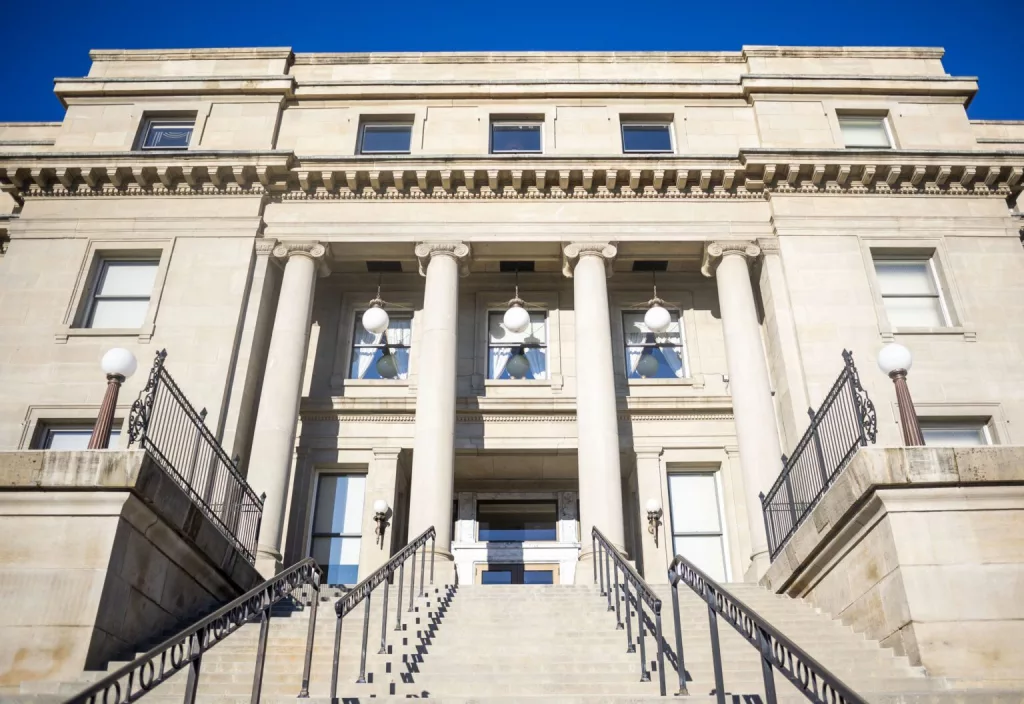BOISE, ID – A panel of Idaho legislators is looking to do one of the first major state government reorganizations since the 1970s, with the primary goal of reducing its size and improving efficiency.
The Idaho Legislature’s DOGE Task Force — named for the federal Department of Government Efficiency that was previously led by billionaire Elon Musk before he left his role in May — met for the first time Friday afternoon at the Idaho State Capitol. The committee was inspired by Idaho’s House Bill 364, which passed the House in the 2025 legislative session but stalled in the Senate.
Committee co-chair Rep. Jeff Ehlers, R-Meridian, said the committee’s directive is to look into three primary focus areas: examine all departments and divisions for reduction, consolidation or elimination; eliminate unnecessary employee positions; and evaluate state travel.
“There’s a lot to look at,” Ehlers said. “So we intend to do a lot in this interim, with the goal to really have some legislation and policy brought forth from this committee that we can implement in the next legislative session.”
Ehlers also said the committee would take public input on existing inefficiencies and potential solutions in an online portal at legislature.idaho.gov/doge.
Although the DOGE bill died during the Idaho legislative session, Idaho GOP legislative leaders announced the creation of the task force in April. Ehlers told the Idaho Capital Sun on Friday that legislative leaders have “broad authority” to create interim committees that meet outside of the approximately three-month legislative session.
In 1970, Idaho constitutional amendment consolidated state government programs
Committee members on Friday heard staff overviews of existing state agencies and programs, and Transparent Idaho, a website that tracks state spending.
Jared Tatro, who leads the Legislative Services Office Impact Review team, said that in 1970 the state passed a constitutional amendment to consolidate government programs into no more than 20 executive branch departments, excluding the offices of Idaho’s seven constitutional officers.
This change was made by the Legislature and approved by the voters to make it easier for people to access their government and to know where to go, Tatro said.
Within each of the departments, there are many sub-units. For instance, within the Office of the Governor there are many other organizations, such as the Idaho Commission for the Blind or the Office of Drug Policy.
Some state agencies, such as the State Board of Education, are set forth in the state Constitution, Tatro said.
In Arkansas, 2019 bill consolidated agencies. But savings weren’t tracked, official says
Lawmakers also heard from an Arkansas official, Amy Fecher, about her state’s more than two-year process to reorganize and consolidate its government. She helped lead the Arkansas Transformation Advisory Board, which worked with the Arkansas Legislature to pass a more than 2,000-page bill in 2019 that set up a framework for the reorganization to take the 42 cabinet-level agencies down to 15.
“We asked the secretaries to evaluate their new departments and to make recommendations on things such as the fleet, the real estate, their staffing and other issues,” Fecher said.
She told lawmakers the cost savings from the changes weren’t able to be tracked. The state operates on a two-year budget, she said, so the officials operated within those previously set budgets.
Several members of the public spoke in support of the task force’s mission. One speaker, Serge Brown, expressed skepticism at whether the group would “solve problems or simply recycle them.”
Idaho Rep. Heather Scott, R-Blanchard, told Brown that lawmakers have limited time during the legislative session, and that the interim committee will allow them to “dig deeper.”
“I would encourage you to be patient with us and let the system work,” Scott said, “and I truly believe you’re going to see some big things out of the committee.”
Ehlers told the Sun he hopes the committee will meet monthly and have legislation ready to recommend for the 2026 Idaho legislative session.
Idaho Capital Sun is part of States Newsroom, a nonprofit news network supported by grants and a coalition of donors as a 501c(3) public charity. Idaho Capital Sun maintains editorial independence. Contact Editor Christina Lords for questions: info@idahocapitalsun.com.
